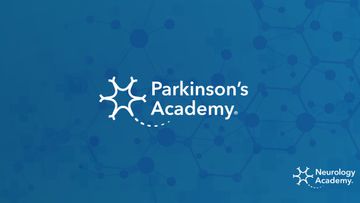Is everyone who could benefit from non-oral therapy receiving them? Know your 10%
 by Sue ThomasThe Non-Oral Therapy Roadshows have been a great success this year raising awareness of the potential treatments and non-oral pathways for people with Parkinson’s (PwP) who might have more complex therapy needs.Around 10% of each Parkinson’s population may require one of the non-oral therapies, namely apomorphine, deep brain stimulation or duodopa. But are all PwP who might benefit from these therapies receiving them?At the most recent Bristol roadshow in November we highlighted the numbers of patients within the three clinical commissioning groups (CCGs) who use Bristol Parkinson’s services. These CCGs are South Gloucestershire, Bristol and North Somerset. Statistics on patient numbers are available from the UK Parkinson's Excellence Network data dashboards. (Prevalence data is based on Parkinson’s UK 2012 Pringsheim 2014).Using these data dashboards, which are open access, any area can determine their local Parkinson’s populations and also look at what is happening with this patient group in terms of their hospital admissions and treatments.
by Sue ThomasThe Non-Oral Therapy Roadshows have been a great success this year raising awareness of the potential treatments and non-oral pathways for people with Parkinson’s (PwP) who might have more complex therapy needs.Around 10% of each Parkinson’s population may require one of the non-oral therapies, namely apomorphine, deep brain stimulation or duodopa. But are all PwP who might benefit from these therapies receiving them?At the most recent Bristol roadshow in November we highlighted the numbers of patients within the three clinical commissioning groups (CCGs) who use Bristol Parkinson’s services. These CCGs are South Gloucestershire, Bristol and North Somerset. Statistics on patient numbers are available from the UK Parkinson's Excellence Network data dashboards. (Prevalence data is based on Parkinson’s UK 2012 Pringsheim 2014).Using these data dashboards, which are open access, any area can determine their local Parkinson’s populations and also look at what is happening with this patient group in terms of their hospital admissions and treatments.NHS Bristol CCG Parkinson’s hospital admissions
 In respect of how many PwP have received one of the non-oral therapies we can also look at this data to elicit if we are supporting PwP with more complex needs.
In respect of how many PwP have received one of the non-oral therapies we can also look at this data to elicit if we are supporting PwP with more complex needs.Bristol CCG Deep brain stimulation procedures
 Deep brain stimulation procedures undertaken across the Bristol catchment area in 2015-2016.
Deep brain stimulation procedures undertaken across the Bristol catchment area in 2015-2016. Given the 10% of the local population in the Bristol area CCGs is around 196 people we should have approximately this number of people having non-oral therapy each year.Bristol as a tertiary centre serves a much wider catchment area than the CCGs identified – supporting PWP from areas such as Cornwall, Wales and the Channel Islands. Based on figures supplied by Dr Alan Whone at the roadshow it seems that a significant number of local people may not be getting a non-oral therapy that might benefit them.The message is ‘KNOW YOUR 10%”. You can find your statistics on the UK Parkinson's Excellence Network Data Dashboards.
Given the 10% of the local population in the Bristol area CCGs is around 196 people we should have approximately this number of people having non-oral therapy each year.Bristol as a tertiary centre serves a much wider catchment area than the CCGs identified – supporting PWP from areas such as Cornwall, Wales and the Channel Islands. Based on figures supplied by Dr Alan Whone at the roadshow it seems that a significant number of local people may not be getting a non-oral therapy that might benefit them.The message is ‘KNOW YOUR 10%”. You can find your statistics on the UK Parkinson's Excellence Network Data Dashboards.References
- Parkinson’s UK (2012) Parkinson’s prevalence in the United Kingdom (2009)
- Pringsheim T, Jette N, Frolkis A, Steeves TD. The prevalence of Parkinson's disease: a systematic review and meta-analysis. Movement Disorders. 2014 Nov;29(13):1583-90. doi: 10.1002/mds.25945. Epub 2014 Jun 28.
Related articles

12 Nov 2024
Knowledge
Hunter Parkinson's Society Meeting 16
'The things you can't get from the books'
Parkinson's Academy, our original and longest running Academy, houses 22 years of inspirational projects, resources, and evidence for improving outcomes for people with Parkinson's. Led by co-founder and educational director Dr Peter Fletcher, the Academy has a truly collegiate feel and prides itself on delivering 'the things you can't get from books' - a practical learning model which inspires all Neurology Academy courses.

